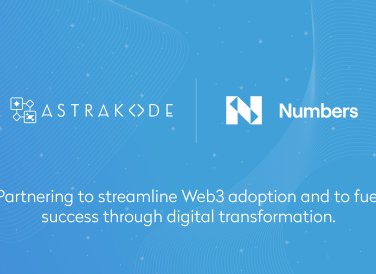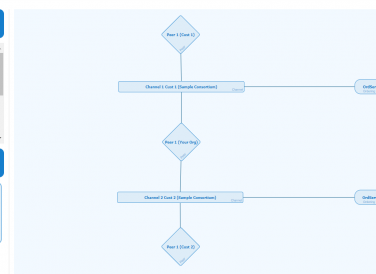
Let’s play! Could YOU create an enterprise blockchain that wins us the war on methamphetamines?
Smart contracts are absolutely amazing at keeping track of data in the virtual world. Every…

Here is one irreverent mental exercise for us and for our community: can we keep track of semen? How is that useful and if we were to do it, how would that come about?
Having a child means you are passing your genes forward. In terms of IT (and otherwise) this is data transfer from two different people to one person, with some loss of information along the way. DNA is valuable information. Where there’s valuable information being transferred, there could be blockchain.
How would we go about tracking reproductive cells and would that EVER be relevant? We tried to think of a good use case for blockchain to toy around with. We came up with…well sperm banks.
In 2015-2017 over 441 000 women had undergone donor insemination in the US alone (according to estimates from the National Institutes of Health in the US). Sperm and egg donations are anonymous. They are also highly regulated.
There are cases where a single donor ended up siring up to 200 children. This means an increased risk of family drama, when Luke and Princess Leia find out they are in fact very much related. How do you track for siblings and relatives while still allowing appropriate anonymity?
Tracking sperm and eggs is a beautiful case of business-to-business. Clinics could virtually guarantee notarization of your family three, even while half of that is anonymous.
Birth certificates on blockchain are not at all new. A birth certificate for an inseminated birth might look quite different. They might hold very valuable data for that offspring.
Here is our take on it. We used AstraKode to put the pieces in place.
A blockchain birth certificate would essentially notarize the circuit of reproductive cells (sperms or eggs) inside a global system of fertilization clinics.
There is a number of issues one must consider when creating the blockchain paperwork.
Our AstraKode sample material is quite simple. We have put four different interconnected clinics at the center. We created a separate identity for each donor. Whether they generously supply multiple clinics with material every year or just once in college, they are accounted for via a unique hash. This way we know when to say when. Technically, each donor is a wallet, with a number of coins. Every time their donation is used, a transaction is made on blockchain.
Everyone involved in this family three can know for sure whether they have half-siblings around the world and how many. We tied into this a document sharing system we created last year. Tweaked for our purpose, siblings can share relevant health records with each other in anonymous fashion.
Truth is we don’t know whether this idea is startup-worthy or not. All we wanted was to toy around with AstraKode and see how far we can stretch its capabilities. You download the step-by-step and a high-level description for the network on this particular use-case by filling out the form below.
We feel this is a great exercise to do if you don’t know where to start with our platform. We also think there is a butterfly effect that somehow might spark creativity for someone on the other end of the line, and that’s our purpose. You can discuss it further inside our Discord community at this link. Thank you for sticking up this far!

Smart contracts are absolutely amazing at keeping track of data in the virtual world. Every…

A new partnership is born AstraKode and Numbers Protocol are excited to announce a strategic…

A few days ago the first demo video of AstraKode Blockchain was published on AstraKode’s YouTube channel. The video showcases…